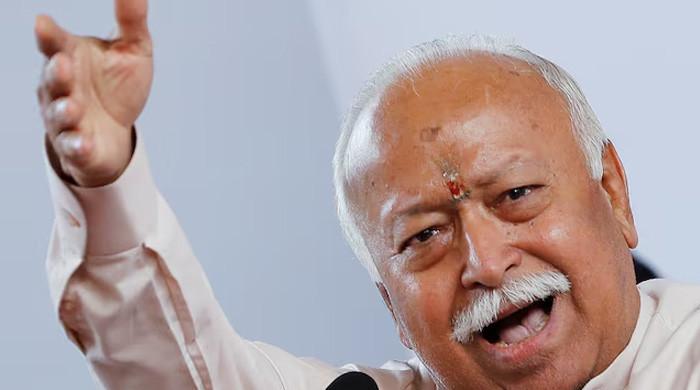- The drop in fertility rates pose demographic risks.
- Bhagwat calls for the balance of the population controlled by the population, but sufficient.
- The leader of the RSS calls on Muslims to overcome fear, to strengthen mutual trust.
New Delhi: The head of the powerful Hindu nationalist of India Rashtriya Swayamsevak Sangh (RSS) said that Indian families should have three children each, warning the long -term risks of the current trend in the drop in birth rate.
At 1.46 billion, India is the most populous nation in the world, but the total fertility rate fell to less than two children per woman, according to the report of the United Nations population in 2025, while economic growth is gaining momentum.
Mohan Bhagwat, head of the RSS who is the ideological parent of the Bharatiya Janata party of Prime Minister Narendra Modi, said that the population should remain “controlled, but sufficient”.
Speaking at a conference to mark the 100th anniversary of the RSS Foundation on Thursday, Bhagwat suggested that “in the national interest, each family should have three children and limit themselves to this”.
Its appeal to larger families reflects anxiety among nationalist leaders and certain regional politicians on long -term demographic stability, national capacity and cultural identity.
For years, Hindu groups have indicated higher birth rate among minority groups such as Muslims as a cause of concern, although data show that Indian Muslims also have fewer children than in the past.
Bhagwat also said that birth rates decreased between religious groups.
While the RSS officially describes itself as a cultural organization promoting Hindu values, it exerts enormous influence through its vast affiliation network and millions of basic volunteers.
Many superior ministers of Modi, including the Prime Minister himself, are long-standing members of the RSS.
Analysts claim that the political priorities of the BJP – cultural reform and education in citizenship laws – often echo the positions defended by the RSS, making the organization one of the most powerful civil society groups in the world.
Bhagwat rejected criticism that the RSS was opposed to Muslims – who represent around 14% of the Indian population – and other minorities saying that the organization considered them all as Indians.
“Our ancestors and our culture are the same. The cult practices can differ, but our identity is one. Changing religion does not change its community,” he said.
“Mutual trust must be built on all sides. Muslims must overcome the fear that others will join their religion.”




